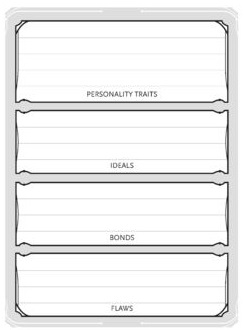(Re)Forging Bonds
By Anthony Casperson
2-8-20
This week, I was taking a look at the part of the Sermon on the Mount where Jesus speaks of the extent of righteousness necessary for we who are his followers. Specifically, the verses of Matthew 5:21-26 were my focus. That’s the part where Jesus says that while it had been said to not murder, in the Kingdom of God, even hating another person is like murder.
Many pastors and scholars apply these verses plainly, saying that hating someone is murdering them in your heart. This is a good point from the passage, but I wondered why hate is like murder. What is the parallel between them?
Often, the extent of discussion in this direction of thought is that in hating a person, we essentially wish the person to be dead or could care less if they were to die. Writing the person off is like killing them from your life.
While I can see that application, I had to look deeper into the passage. That’s when I noticed that the word translated “liable” in the ESV (other translations might have “in danger” or “guilty”) is repeated a few times in Matt. 5:21-22. The passage basically says to not murder/hate otherwise we’ll be liable to judgement. The command is don’t murder or hate. The warning is that judgement comes to all who do.
But what does this “liable” word mean? Looking at the Greek, it has the idea of being “bound without escape.” And that’s when the thought hit me. When we have an interpersonal relationship with someone else, we have a bond. Something that connects us to them.
It’s kinda like the oft-forgotten aspect of player characters in 5th Edition D&D. Players decide a Bond for their character when first creating them. A person, place, or thing that drives them act. Regardless of what the bond is with (a relative that they care for, an enemy that they’re hunting, a place they seek to find, or a family heirloom they must protect with their life) it’s something that makes them act whenever that bond is pressed.
There is no escape from a bond once it has been forged. Some might try to forget it, or put the bond out of their mind. And in the extreme sense, a person might kill the one with whom they’re bonded to release the connection. But such action doesn’t remove a bond, it transfers that bond to something else. It’s inescapable, remember.
And in the case of murder and hate, this transference of bond moves to judgement. Whenever that person who we think is an idiot, or whom we’ve kicked out of our lives, or even killed (if we’ve gotten that far) comes up in conversation, the bond to sin and judgement that we have is pressed. Decades later, we can still be moved to tears from the pain of that bond.
Murder and hate are both an attempt to remove a bond with someone in our lives. A bond that will never really go away.
So, what is the point of all of this? Well, the rest of the passage tells us that. Verses 23-24 of our passage give an example of a person going to worship God who then remembers that there’s a strain on their bond with a brother. Rather than continuing to go before our God and Judge with a bond transferred to judgement, it’s better to reconcile that relationship first, and then return to the worship of God.
The reconciliation is better for our lives, both in the physical and spiritual realms. If our bonds with our fellow images of God aren’t transferred to judgement, then our relationship with God will not be disrupted with it.
Verses 25-26 come at this in a different angle. Sure, it might be easier to reconcile with someone we think of as a friend or sibling, but what about our enemies? What about the people who have it out for us? Well, that bond works the same way.
The example is that when we are about to enter legal proceedings with another, it’s better to reconcile beforehand. Otherwise, we might end up with several new bonds. One with the judge. Another with the jailer. And a final one with the prison. Bonds that are also inescapable.
Though the bonds might have varying degrees, every person in our lives is bound to us. Hate and murder transfer that bond to judgement like a judge giving the guilty party to the jailer. Even if we’re in the right, even if it hurts, it’s better to live bound to the person than the judgement.
It’s not easy to do. I know that I’ve burned bridges in my past too. Actions I’m not proud of. The good news is that Jesus’ sacrifice on the cross reconciles us to God, regardless of our bonds to judgement. But let us reconcile with the people as well.
Reforging bonds with those who’ve truly hurt us might be difficult, but if God can reconcile with we who railed against his goodness, can we not at least try to emulate the God whose kingdom we’re a part of?




